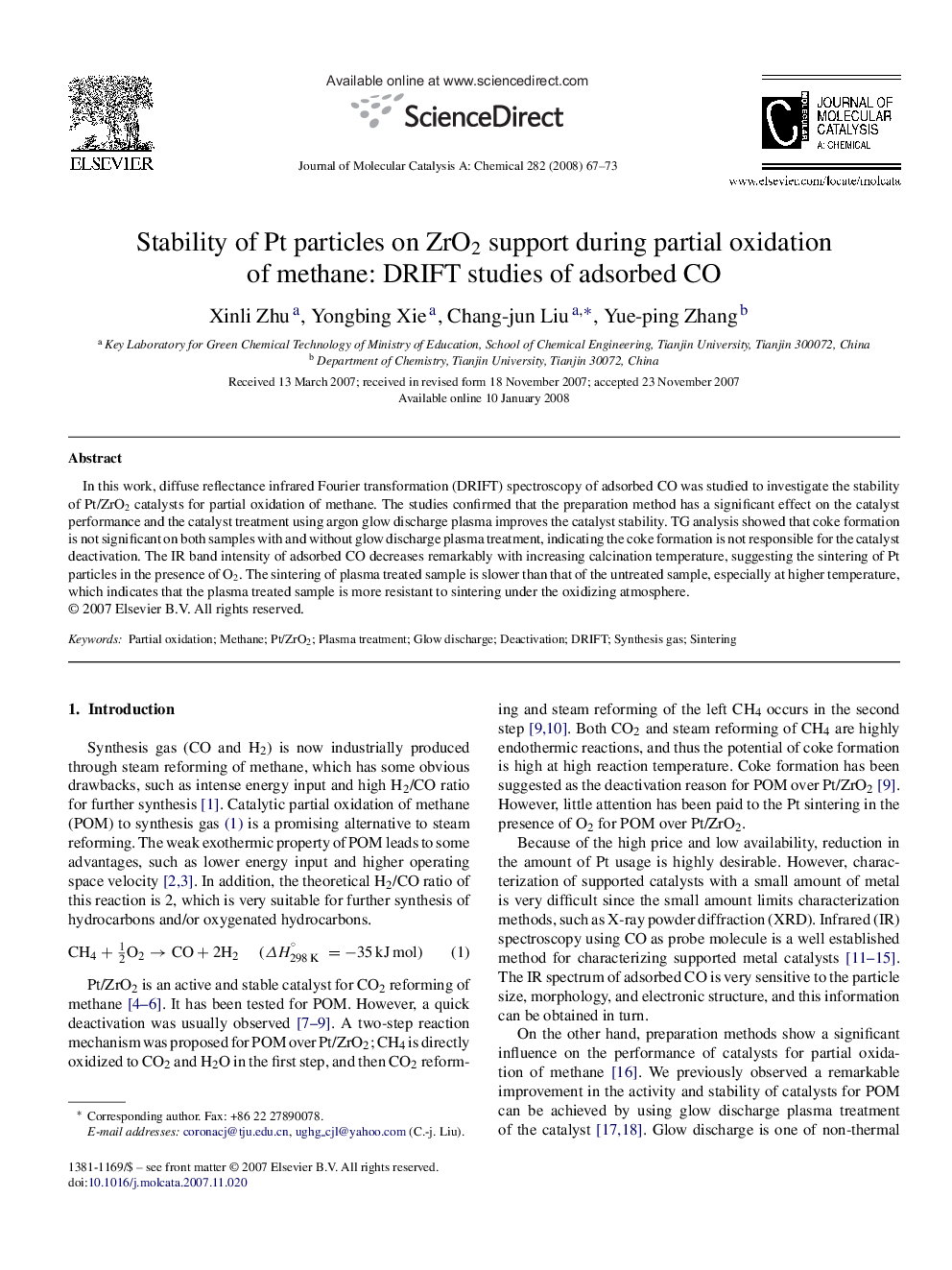| Article ID | Journal | Published Year | Pages | File Type |
|---|---|---|---|---|
| 67294 | Journal of Molecular Catalysis A: Chemical | 2008 | 7 Pages |
In this work, diffuse reflectance infrared Fourier transformation (DRIFT) spectroscopy of adsorbed CO was studied to investigate the stability of Pt/ZrO2 catalysts for partial oxidation of methane. The studies confirmed that the preparation method has a significant effect on the catalyst performance and the catalyst treatment using argon glow discharge plasma improves the catalyst stability. TG analysis showed that coke formation is not significant on both samples with and without glow discharge plasma treatment, indicating the coke formation is not responsible for the catalyst deactivation. The IR band intensity of adsorbed CO decreases remarkably with increasing calcination temperature, suggesting the sintering of Pt particles in the presence of O2. The sintering of plasma treated sample is slower than that of the untreated sample, especially at higher temperature, which indicates that the plasma treated sample is more resistant to sintering under the oxidizing atmosphere.
Graphical abstractDRIFT spectra of adsorbed CO show that Pt sintering is accelerated with increasing calcination temperature. Pt/ZrO2 deactivation during partial oxidation of methane is not related to coke formation, but to Pt sintering in the presence of oxygen through the Ostwald ripening pathway. Improved resistance to sintering will lead to better stability.Figure optionsDownload full-size imageDownload as PowerPoint slide
